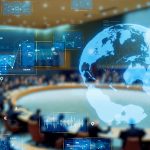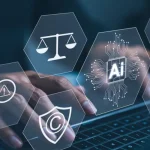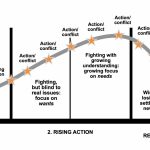Introduction
The world is undergoing a profound transformation driven by rapid technological expansion, shifting political alliances, and the rising influence of celebrity culture. These forces shape economies, alter public expectations, and redefine how societies interpret global events in real time. Each element contributes to a broader narrative that affects not only governance but also cultural identity and global connectivity.
As technology expands across borders, leaders are reconsidering their strategic priorities while public figures amplify conversations that would once have remained exclusive to political institutions. This interconnected environment has created a modern global framework where influence, power, and information flow faster and more widely than ever before.
The Acceleration of Tech Power in Global Economies
Technological advancements have become the cornerstone of international competition as nations invest heavily in artificial intelligence, cloud infrastructure, cybersecurity systems, and advanced robotics. These innovations determine economic resilience, military strength, and diplomatic capabilities, making technology a primary factor in shaping global influence.
The widespread adoption of digital solutions has also increased pressure on governments to maintain seamless integration across industries. From digital health services to smart logistics, every sector depends on stable technological foundations that must meet rising societal and commercial demands.
Celebrity Voices Transforming Global Awareness
Celebrities have transitioned from entertainers to cultural ambassadors as their online reach now surpasses traditional media outlets. Their public statements influence social movements, encourage political participation, and highlight global concerns that may otherwise remain overlooked by mainstream institutions.
This growing influence empowers younger audiences to engage with international issues, though it also raises questions about responsibility and expertise. As public figures take on larger roles in political and social advocacy, their impact becomes a defining feature of modern global communication.
Political Systems Adapting to Digital Realities
Governments face unprecedented challenges as they restructure laws and policies to align with rapidly evolving digital landscapes. Issues such as data privacy, AI governance, and digital taxation require comprehensive frameworks that ensure national security while supporting innovation and economic growth.
These changes also reshape public expectations as citizens demand greater transparency, real-time communication, and digital access to government services. Political leaders must now balance technological advancement with ethical considerations, elevating digital policy to the highest levels of global importance.
The Rise of Tech-Backed Geopolitical Tensions
Technological advancement has created new arenas of geopolitical competition as countries race to develop next-generation tools that offer economic and military advantages. From semiconductor independence to AI-driven defense systems, these strategic priorities define modern diplomatic relations.
The competition often results in alliances formed around technological needs rather than traditional political interests. As nations navigate this new digital landscape, maintaining cooperation becomes essential for preventing conflicts that stem from technological disparities.
Media Evolution and the Digital Public Sphere
Digital platforms have transformed how global audiences consume information as algorithms shape visibility and affect public perception. Media outlets now rely heavily on technological systems that enhance speed and reach but also introduce complexities related to authenticity and manipulation.
This shift has empowered users to participate in global discussions, yet it also underscores the need for digital literacy. Understanding how content is curated becomes crucial in navigating a world where information flows faster than verification processes can manage.
Pop Culture’s Influence on Technological Trends
Pop culture now drives conversations around innovation as entertainment industries integrate futuristic concepts into mainstream storytelling. Audiences engage with narratives involving digital ethics, AI integration, and political transformation, creating an environment where imagination fuels public interest in real-world technology.
This relationship enhances awareness but also places responsibility on content creators to portray these advancements thoughtfully. As entertainment becomes a bridge between imagination and policy, cultural representation plays a growing role in shaping the public’s understanding of technological progress.
FAQs
How is technology influencing political decisions today?
Governments rely on technological tools to enhance security, improve public services, and strengthen international competitiveness, reshaping policy priorities worldwide.
Why do celebrities influence global narratives so effectively?
Their online presence and large audiences allow them to highlight issues quickly and shape public opinion across borders.
What global challenges arise from digital transformation?
Concerns include data privacy, cybersecurity, economic disruption, and the need for updated legal frameworks to manage digital systems responsibly.
How are media platforms affecting global communication?
They use algorithms that determine content visibility, influencing public understanding and discourse on international events.
Why is pop culture important in discussions about technology?
It introduces technological concepts to wider audiences, encouraging engagement and shaping public perspectives on future innovation.
Conclusion
The intersection of technology, global politics, and celebrity influence defines the current global landscape as each force reshapes public perception and national priorities. Their combined impact drives rapid changes that influence cultural identity, policymaking, and international competition on a scale not previously seen.
As societies continue evolving within this digital ecosystem, maintaining ethical leadership and informed public engagement becomes essential. The future of global development will depend on how effectively these forces work together to promote stability, innovation, and collective progress.







